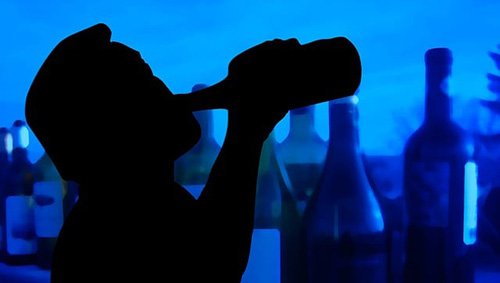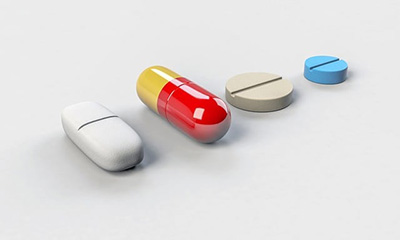Contents
Alcohol withdrawal syndrome, or AWS, affects millions of people worldwide, affecting their lives in extreme ways. It’s not merely a hangover, but a potentially dangerous cascade of physical and psychological reactions triggered when heavy drinkers abruptly stop or significantly reduce their alcohol intake.
WikEM, a trusted medical information source, can guide you through the complexities of AWS, helping you understand its symptoms, explore effective management strategies, and discover the available treatment options.
Recognizing the Signs

Mild symptoms, often mistaken for a hangover, characterize the initial stages of AW. However, as the body continues to adjust to the absence of alcohol, these symptoms can progress and become increasingly severe. Recognizing these signs is crucial for seeking timely medical attention and safely going through the withdrawal process.
Physical Symptoms
- Tremors: One of AW’s most recognizable physical symptoms is tremors, often called “the shakes.” These can range from mild, barely noticeable hand tremors to significant tremors affecting the entire body.
- Sweating: Excessive sweating and clammy skin are common physical manifestations of AW. The body attempts to regulate its temperature through increased sweating, which can accompany chills and hot flashes.
- Nausea and vomiting: As the body seeks to rid itself of residual alcohol, nausea, and vomiting can become frequent and debilitating. This can lead to electrolyte and dehydration imbalance, further exacerbating withdrawal symptoms.
- Headache: A throbbing headache is a frequently reported symptom of alcohol withdrawal. It can be accompanied by sensitivity to light and sound, making it difficult to function normally.
- Insomnia and sleep disturbances: Disrupted sleep patterns are a hallmark of alcohol withdrawal. Individuals may experience problems falling asleep, staying asleep, or both, leading to fatigue, irritability, and impaired cognitive function.
- Loss of appetite: AW significantly suppresses the body’s natural craving for food. This can lead to malnutrition and weaken the immune system, making you more prone to infections.
Psychological Symptoms
- Anxiety and irritability: Heightened anxiety and irritability are common psychological symptoms of alcohol withdrawal. Individuals may face feelings of nervousness, restlessness, and difficulty concentrating.
- Depression: As the brain adjusts to the absence of alcohol, mood swings and depressive symptoms can emerge. Individuals may feel hopeless, experience a loss of interest in activities they once enjoyed, and depart from social interactions.
- Hallucinations and delusions: In severe cases of alcohol withdrawal, individuals may experience hallucinations (seeing or hearing things that aren’t there) or delusions (holding onto false beliefs despite evidence to the contrary). These symptoms require immediate medical attention.
- Seizures: In rare cases, AW can trigger seizures, unusually in individuals with a history of epilepsy or other neurological disorders. This is a life-threatening emergency that requires speedy medical intervention.
Understanding AW’s spectrum of physical and psychological symptoms is crucial for individuals and their support systems. Recognizing these signs early on and obtaining professional medical care can make a considerable difference in navigating the withdrawal process safely and effectively.
Treatment Options for Alcohol Withdrawal
Overcoming alcohol withdrawal requires a comprehensive and multifaceted approach. Thankfully, a wide range of treatment options are available to address the varying levels of severity and individual needs. Understanding these possibilities is vital for making informed decisions and navigating recovery.
Medications

- Benzodiazepines: The mainstay of medication-assisted alcohol withdrawal treatment, benzodiazepines like diazepam (Valium) and chlordiazepoxide (Librium) work by reducing brain activity and calming the nervous system. Benzodiazepines effectively manage anxiety, tremors, and seizures. Their dosage is gradually tapered to minimize the risk of dependence.
- Beta-blockers: During alcohol withdrawal, the body experiences a surge in adrenaline, leading to physical symptoms like tremors, sweating, and rapid heart rate. To combat these uncomfortable and potentially dangerous effects, medical professionals often turn to beta-blockers like propranolol (nderal) and atenolol (Tenormin).
- Anticonvulsants: When seizures threaten during AW, anticonvulsants like gabapentin (Neurontin) and carbamazepine (Tegretol) stabilize brain activity and prevent seizures. These medications are classically only used in severe cases or for individuals with a history of seizures.
Non-pharmacological interventions
- Nutritional support: Proper nutrition and hydration are crucial to the body’s natural healing processes during alcohol withdrawal. This often involves a multi-pronged approach:
- Intravenous fluids: Medical professionals may administer fluids directly into the bloodstream to address dehydration and electrolyte imbalances.
- Electrolyte supplements: AW can deplete essential minerals like sodium, potassium, and magnesium, which these oral or intravenous solutions actively restore.
- Dietary guidance: Consultations with a nutritionist or dietician can ensure individuals receive personalized advice on food choices that address any existing malnutrition and promote overall health during this critical phase.
Individuals undergoing alcohol withdrawal can navigate this challenging process with more support and strength by prioritizing hydration and providing the body with the necessary nutrients.
- Vitamins and minerals: Alcohol can deplete the body of essential vitamins and minerals, further impacting physical and mental health. Healthcare professionals often recommend supplements like thiamine (vitamin B1), magnesium, and folate to address deficiencies and support recovery during alcohol withdrawal.
- Psychotherapy: Individual or group therapy can play a valuable role in addressing the psychological aspects of AW. Cognitive-behavioral therapy (CBT) and other therapeutic approaches can help individuals develop coping mechanisms, manage cravings, and build resilience against relapse.
- Support groups: Connecting with others who are going through comparable experiences can offer invaluable support and encouragement. Alcoholics Anonymous (AA) and other support groups provide a safe space to share occurrences, learn from others, and build a strong network of support for long-term recovery.
The treatment options for AW depend on the severity of symptoms, individual medical history, and personal preferences.
Special Considerations in AW
While the core principles of alcohol withdrawal treatment remain consistent, specific populations require tailored approaches to address their unique needs and challenges. Understanding these special considerations is crucial for ensuring the safety and efficacy of treatment for diverse groups.
Pregnant Women
- Risks and benefits of medication: Pregnant women experiencing AW face a delicate balance. While medication-assisted treatment is often necessary, certain medications can pose hazards to the developing fetus. To minimize potential teratogenic effects, healthcare providers generally avoid prescribing benzodiazepines during the first trimester. Instead, they may consider alternative medications, such as beta-blockers.
- Non-pharmacological interventions: Non-pharmacological interventions like nutritional support, vitamin supplementation, and psychotherapy play a vital role in managing AW in pregnant women. These interventions can address the physical and psychological needs of the mother while minimizing potential risks to the fetus.
- Long-term support for mother and child: Comprehensive care for pregnant women extends beyond the withdrawal process. Long-term support programs can help mothers address addiction, develop healthy coping mechanisms, and provide a nurturing environment for their children.
Elderly Individuals
- Increased susceptibility to complications: Due to age-related physiological changes, elderly individuals are more susceptible to complications from AW, including delirium tremens and seizures. They may also have underlying medical conditions requiring careful consideration during treatment.
- Slower detoxification process: For elderly individuals, the process of detoxifying from alcohol may be slower than for younger individuals. Medications must be carefully chosen and administered at lower dosages to curtail the risk of adverse side effects.
- Individualized care plans: Developing a personalized care plan that addresses the unique medical and social needs of elderly individuals is crucial for successful withdrawal and recovery. This may include additional services like home care assistance and social support networks.
Individuals with Co-morbidities
- Co-existing mental health conditions: Individuals with co-existing mental health disorders like depression or anxiety require a treatment approach that addresses both the AW and the underlying mental health condition. This may involve a blend of medication, therapy, and other medications tailored to their needs.
- Chronic medical conditions: The existence of chronic medical conditions like diabetes or heart disease adds a layer of complexity to the treatment of alcohol withdrawal syndrome. Healthcare professionals must carefully monitor vital signs, adjust medications if necessary, and ensure that treatment plans do not exacerbate existing conditions.
- Collaborative care: When individuals experience co-morbidities, medical professionals, addiction specialists, and mental health professionals must collaborate to systematically and effectively address all aspects of their health. By working together, medical professionals, addiction specialists, and mental health professionals consider all aspects of the individual’s health, allowing for the development of personalized treatment plans tailored to their specific needs.
By recognizing the distinctive needs of these specific populations and tailoring treatment plans accordingly, healthcare professionals can ensure safe and effective management of AW for everyone, regardless of their circumstances.
A Message of Encouragement and Support
Proper medical care, support from loved ones, and an unwavering commitment to recovery can help you emerge stronger and healthier.
- Seek professional help: The expertise of medical professionals plays a pivotal role in managing withdrawal symptoms safely and effectively. Don’t hesitate to seek assistance from a healthcare provider who can gauge your needs and prescribe the appropriate treatment plan.
- Embrace support: Surrounding yourself with supportive individuals can be an effective source of strength and motivation. Lean on loved ones, join support groups, and connect with individuals who identify the challenges and triumphs of recovery.
- Focus on self-care: Prioritize your physical and mental health. Incorporate healthy habits like regular exercise, balanced meals, and adequate sleep into your daily routine. These practices will significantly impact your overall recovery process.
- Develop coping mechanisms: Equip yourself with healthy coping mechanisms to manage cravings and triggers. Techniques like relaxation exercises, mindfulness practices, and engaging in hobbies can help navigate challenging moments and prevent relapse.
- Celebrate progress: Recovery is a journey, not a destination. Acknowledge and celebrate every milestone, no matter how small. Your progress will fuel your motivation and solidify your commitment.
- Believe in yourself: It is crucial to embrace self-compassion and self-belief. Remember, you can overcome this challenge and create a brighter future.
References and Resources for Further Exploration
Here are credible resources and references for further information and support.
Resources
- National Institute on Alcohol Abuse & Alcoholism: Provides comprehensive information on alcohol use disorders, including withdrawal symptoms, treatment options, and local resources.
- Substance Abuse and Mental Health Services Administration: This agency offers a national helpline (1-800-662-HELP) for individuals seeking support and referrals to treatment facilities.
- Alcoholics Anonymous: A 12-step program offering peer support and fellowship for individuals seeking recovery from alcohol dependence.
- Al-Anon: Provides guidance and understanding for family members and friends of individuals struggling with alcohol dependence.
- National Council on Alcoholism & Drug Dependence: Offers educational materials, support groups, and advocacy efforts for individuals and families affected by alcohol dependence.
- MentalHealth.gov: Provides information and resources on various mental health conditions, including co-occurring disorders often associated with alcohol dependence.
- SAMHSA National Helpline: 1-800-662-HELP (4357)
- National Suicide Prevention Lifeline: 1-800-273-8255

By exploring these sources and references, you can gain more profound perceptions of the various aspects of alcohol withdrawal, treatment options, and available support systems. Remember, knowledge is power, and by actively engaging with these resources, you can empower yourself and navigate the journey to recovery with greater confidence and understanding.
Taking Action
The journey to recovery from alcohol withdrawal is personal and filled with challenges and triumphs. However, by actively engaging in the process, seeking support, and embracing self-compassion, you can reclaim your life and build a brighter future.
- Share this information: By sharing this article with others struggling with AW or seeking information for their loved ones, you can empower them with valuable knowledge and resources.
- Connect with support groups: Joining online or offline support groups can provide a safe space to connect with individuals who recognize your experiences and offer encouragement and guidance.
- Spread awareness: Engaging in conversations about AW and addiction can help break down stigma and encourage others to seek help.
- Advocate for better resources: By raising awareness and advocating for improved access to treatment and support services, you can create a more supportive environment for individuals facing AW.
- Celebrate recovery: Sharing stories of hope and resilience can inspire others and demonstrate the transformative power of overcoming addiction.
Health Disclaimer: The information on this website is for educational uses only and is not a substitute for professional medical advice. Always consult an authorized healthcare provider for any health concerns before using any herbal or natural remedy. We do not establish, treat, cure, or prevent any disease. Reliance on any material from this website is solely at your own risk. We are not responsible for any adverse effects resulting from the use of information or products mentioned on this website.
References
- American Psychiatric Association. (2013). Diagnostic & statistical manual of mental disorders (5th ed.). doi:10.1176/appi.books.9780890425596
- National Institute on Alcohol Abuse and Alcoholism. (2023, August). AW. niaaa.nih.gov
- Substance Abuse and Mental Health Services Administration. (2023, September). Alcohol withdrawal syndrome. samhsa.gov
- Mayo Clinic. (2023, August). Alcohol withdrawal syndrome. mayoclinic.org
- Cleveland Clinic. (2023, March). Alcohol withdrawal: Symptoms, stages, and treatment. my.clevelandclinic.org
- Medscape. (2023, October). Alcohol withdrawal. emedicine.medscape.com
- World Health Organization. (2023, March). Alcohol withdrawal syndrome. who.int
- American Society of Addiction Medicine. (2023). The ASAM criteria. asam.org
